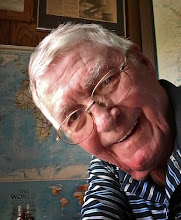
HAPPY THANKSGIVING—
Malabar Farm Naturalist Lisa Durham of Bellville, in colonial costume (above), tends to the turkey roasting in a reflector oven at their recent Hearthside Cooking Workshop. Twenty six folks were enrolled in this recent day-long event where an entire Thanksgiving dinner is prepared in this traditional manner.
Another ½ dozen Dutch Ovens were cooking in a second fireplace where other “colonial” folks (staff and volunteers) tended the wood fire and kept a fresh supply of hot coals supplied to the cast iron pots.
The cooking times were carefully scheduled so the entire dinner would be finished by the day’s end.
Preparations included roast turkey and ham, cornbread dressing, a cranberry medley, maple baked carrots, Harvard beets, mashed potatoes with turkey gravy, baked squash, corn pudding, cranberry maple sauce, Irish soda bread, pumpkin pie, German apple cake, whipped cream and hot mulled cider.
Participants, in small squads, were kept busy throughout the day peeling and slicing and dicing and mixing and mashing ingredients for these various culinary delights.
All went home with five printed pages of recipes on how to prepare this holiday feast.
Here’s how the pioneers dealt with the absence of canned pumpkin on the grocery store shelf:
“Pie pumpkins are usually small and have a darker color than decorative pumpkins. Select firm pumpkins, wash thoroughly, cut into chunks. Place in a Dutch oven, add at least 2 inches of water and cook until soft.
Drain water, scoop pumpkin from skin and mash. Put mashed pumpkin in a colander lined with cheesecloth and let drain for 10-15 minutes to remove excess liquid. Use the mashed pumpkin as you would canned pumpkin.”
I asked Naturalist Lisa, “What happens to all this food at day’s end?”
She smiled, “Why, we eat it, of course...” ...with gratitude, naturally, for the traditional bounty of our country as celebrated in this holiday season.

1 comment:
pretty cool. Did you go and watch them cook it up?
Post a Comment